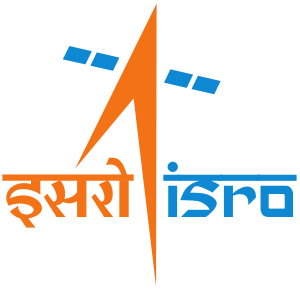The Indian Space Research Organisation (ISRO) is the primary space agency of India. ISRO is amongst the largest government space agencies in the world. Its primary objective is to advance space technology and use its applications for national benefit.
Established in 1969, ISRO superseded the erstwhile Indian National Committee for Space Research (INCOSPAR). Headquartered in Bangalore, ISRO is under the administrative control of the Department of Space, Government of India.
Read Also: 10 Countries with Space presence
ISRO built India’s first satellite, Aryabhata, which was launched by the Soviet Union on 19 April in 1975. In 1980, Rohini became the first satellite to be placed in orbit by an Indian-made launch vehicle, SLV-3. ISRO subsequently developed two other rockets: the Polar Satellite Launch Vehicle (PSLV) for launching satellites into polar orbits and the Geosynchronous Satellite Launch Vehicle (GSLV) for placing satellites into geostationary orbits. These rockets have launched numerous communications satellites and earth observation satellite.
In 2008, ISRO successfully launched its first lunar probe, Chandrayaan-1, while future plans include an indigenous development of GSLV, manned space missions, further lunar exploration, mars exploration and interplanetary probes. 5 November 2013, ISRO launched its Mars Orbiter Mission, which is expected to enter orbit around Mars on 24 September 2014.
Organised space research in India was spearheaded by two scientists: Vikram Sarabhai—founder of the Physical Research Laboratory at Ahmedabad—and Homi Bhabha, who had played a role in the establishment of the Tata Institute of Fundamental Research in 1945.
Must Read: ISRO Unveils Hub for its Navigation Fleet
Space research was further encouraged by the technically inclined Prime Minister of India, Jawaharlal Nehru. In 1957, the Soviet Union successfully launched Sputnik and opened up possibilities for the rest of the world to conduct a space launch. INCOSPAR was found in 1962 with Vikram Sarabhai as its chairman.
The prime objective of ISRO is to develop space technology and its application to various national tasks. The Indian space programme was driven by the vision of Dr. Vikram Sarabhai, considered the Father of Indian Space Programme.
ISRO plans to launch a number of new-generation Earth Observation Satellites in the near future. It will also undertake the development of new launch vehicles and spacecraft. ISRO has stated that it will send unmanned missions to Mars and Near-Earth Objects. ISRO has planned 58 missions during 2012–17; 33 satellites missions in next two years and 25 launch vehicles missions thereafter.
Don’t Miss:
International Environmental Organizations
China to Launch New Marine Surveillance Satellites HY-3 by 2019



